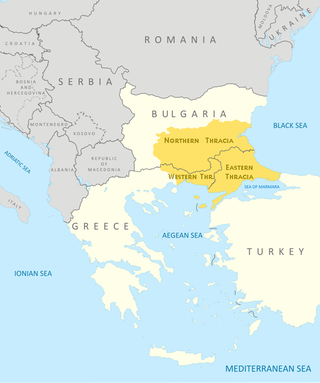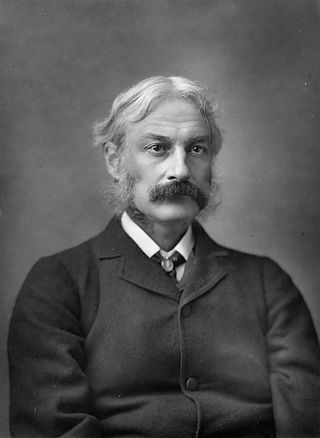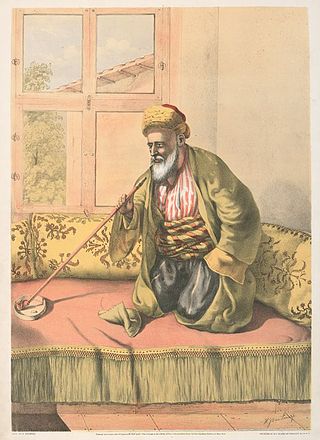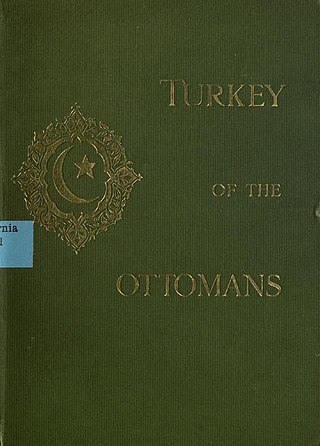Related Research Articles

Thrace is a geographical and historical region in Southeast Europe. Bounded by the Balkan Mountains to the north, the Aegean Sea to the south, and the Black Sea to the east, it comprises present-day southeastern Bulgaria, northeastern Greece, and the European part of Turkey, roughly the Roman Province of Thrace. Lands also inhabited by ancient Thracians extended in the north to modern-day Northern Bulgaria and Romania and to the west into Macedonia.

Andrew Lang was a Scottish poet, novelist, literary critic, and contributor to the field of anthropology. He is best known as a collector of folk and fairy tales. The Andrew Lang lectures at the University of St Andrews are named after him.
E Bukura e Dheut is a character in Albanian mythology and folklore, depicted in some traditions as a crafty fairy, and in other traditions as a chthonic/earth goddess, the counterpart of e Bukura e Detit and i Bukuri i Qiellit. In some Albanian traditions she is regarded as the sister of e Bukura e Detit and the consort of Baba Tomor.

The samodiva, samovila or vila, are woodland fairies or nymphs found in South and West Slavic folklore.

Effendi or effendy is a title of nobility meaning sir, lord or master, especially in the Ottoman Empire and the Caucasus. The title itself and its other forms are originally derived from Medieval Greek aphentēs which is derived from Ancient Greek authentēs meaning lord.

James Theodore Bent was an English explorer, archaeologist, and author.

The Greeks have been identified by many ethnonyms. The most common native ethnonym is Hellen, pl. Hellenes (Ἕλληνες); the name Greeks was used by the ancient Romans and gradually entered the European languages through its use in Latin. The mythological patriarch Hellen is the named progenitor of the Greek peoples; his descendants the Aeolians, Dorians, Achaeans and Ionians correspond to the main Greek tribes and to the main dialects spoken in Greece and Asia Minor (Anatolia).
The Sleeping Prince is a Greek fairy tale collected by Georgios A. Megas in Folktales of Greece.
Maroula is a Greek fairy tale collected by Georgios A. Megas in Folktales of Greece.

Eugene Schuyler was a nineteenth-century American scholar, writer, explorer and diplomat. Schuyler was one of the first three Americans to earn a Ph.D. from an American university; and the first American translator of Ivan Turgenev and Lev Tolstoi. He was the first American diplomat to visit Russian Central Asia, and as American Consul General in Istanbul he played a key role in publicizing Turkish atrocities in Bulgaria in 1876 during the April Uprising. He was the first American Minister to Romania and Serbia, and U.S. Minister to Greece.
The demographics of the Ottoman Empire include population density, ethnicity, education level, religious affiliations and other aspects of the population.
This list of the works of William Crooke (1848–1923) represents much of his literary output in pursuit of his interests in ethnology and folklore, for which he was far many years considered to be a leading authority.
John Stuart Stuart-Glennie (1841–1910) was a Scottish barrister, folklorist, philosopher, founding sociologist, and socialist.

A cycle of folk songs pertaining to the Souliotes and mainly to their wars against the Turks and the Albanians of Ali Pasha in 18th and early 19th century.

The language of the court and government of the Ottoman Empire was Ottoman Turkish, but many other languages were in contemporary use in parts of the empire. Although the minorities of the Ottoman Empire were free to use their language amongst themselves, if they needed to communicate with the government they had to use Ottoman Turkish.

Panagiotis Aravantinos was a Greek scholar and educator who was born in Parga. He worked primarily in Epirus, which was then under the rule of the Ottoman Empire. As with many Greek names, his names appears in English literature in a variety of Romanizations, e.g. the first name as Panagiōtēs or Panayiotis etc., and the last name, as Aravandinos.
"The Song of Wandering Aengus" is a poem by Irish poet W. B. Yeats. It was first printed in 1897 in British magazine The Sketch under the title "A Mad Song." It was then published under its standard name in Yeats' 1899 anthology The Wind Among the Reeds. It is especially remembered for its two final lines: "The silver apples of the moon,/ The golden apples of the sun."
Sun, Moon and Morning Star is a Greek folktale collected and published in 1864 by Austrian consul Johann Georg von Hahn. It is related to the folkloric motif of the Calumniated Wife and classified in the international Aarne-Thompson-Uther Index as type ATU 707, "The Three Golden Children".

Turkey of the Ottomans is an anthropological book written by Lucy Garnett and published by Charles Scribner's Sons in 1911. The book is a collection of summaries on socio-cultural and political structures of the Ottoman Empire in the early 20th century. It's compiled from both the author's first-hand experiences during her time in Turkey and third-hand sources. The book received good receptions at the time of its release.
References
- ↑ Fowler, Rowena (2004). "Garnett, Lucy Mary Jane (1849–1934)". Oxford Dictionary of National Biography. Retrieved 22 October 2010.
- ↑ Semele Assinder. "Research" . Retrieved 13 April 2011.
- ↑ Lucy M.J. Garnett, Greek Folk-songs from the Ottoman Provinces of Northern Hellas, 1888
- ↑ Stuart-Glennie, John S.; Garnett, Lucy Mary Jane (1888). Greek folk-songs from the Ottoman provinces of northern Hellas. The modern revolution. Inductive generalizations. Researches and essays. London: Ward and Downey.
- ↑ Garnett, Lucy Mary Jane; Stuart-Glennie, John S. (1890–91). The women of Turkey and their folk-lore. London: D. Nutt.
- ↑ Garnett, Lucy Mary Jane (1911). Turkish life in town and country. Our European neighbours. New York, London: G.P. Putnam's sons.
- ↑ Garnett, Lucy Mary Jane (1909). The Turkish people, their social life, religious beliefs and institutions, and domestic life. London: Methuen & co.
- ↑ Garnett, Lucy Mary Jane (1911). Turkey of the Ottomans. London: Sir I. Pitman & Sons.
- ↑ Garnett, Lucy Mary Jane (1912). Mysticism and magic in Turkey; an account of the religious doctrines, monastic organisation, and ecstatic powers of the Dervish orders. London: Scribner.
- ↑ Garnett, Lucy Mary Jane (1914). Greece of the Hellenes. Countries and people series. New York: Scribner.
- ↑ Garnett, Lucy Mary Jane (1915). Ottoman wonder tales. London: A. and C. Black, limited.
- ↑ Garnett, Lucy Mary Jane (1917). Balkan home life. London: Methuen & co. ltd.